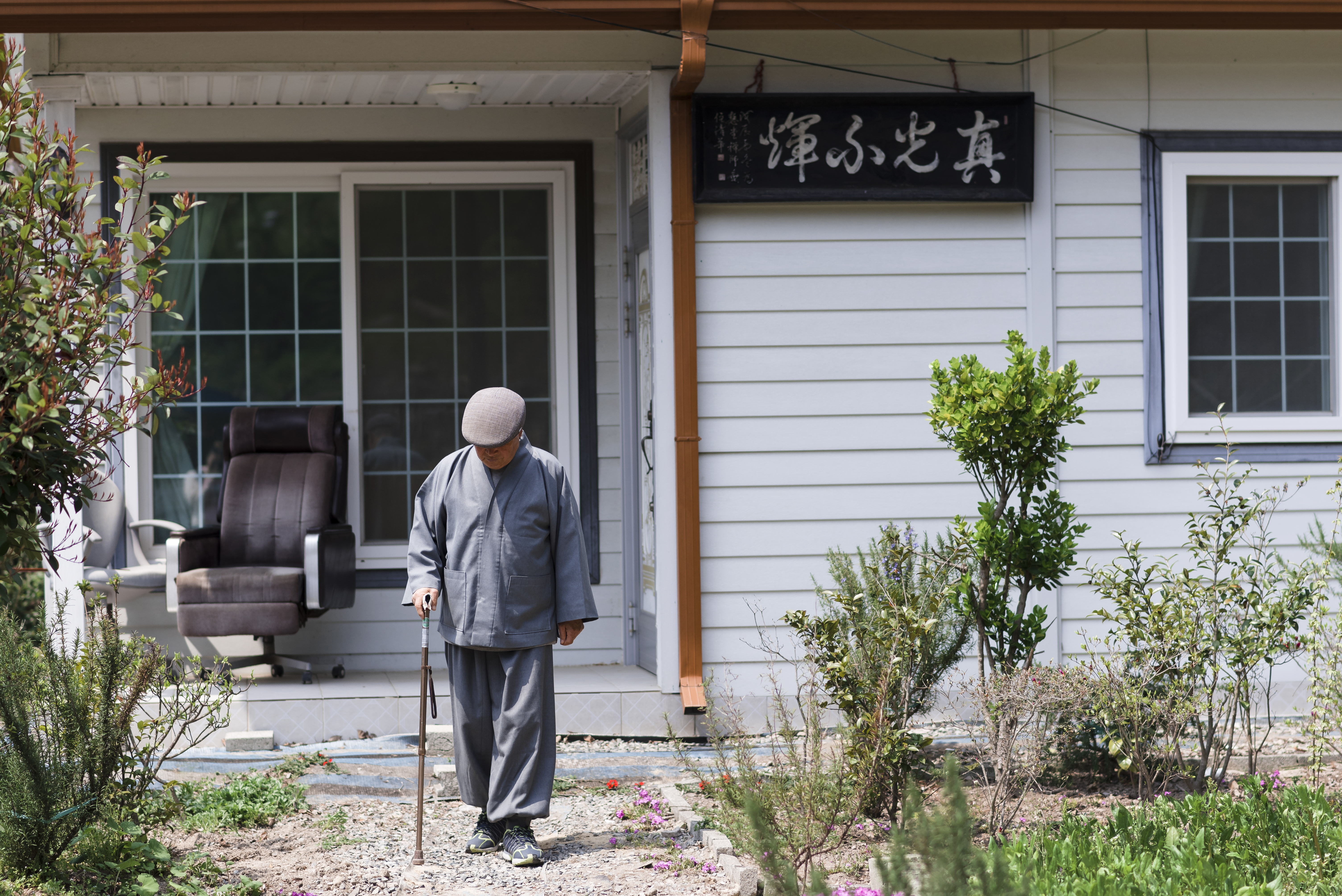Lessons of May 18: Hyedang Seunim Reflects on a Life of Teaching

Photos by Lorryn Smit and courtesy of Hyedang Seunim
At the Jeollanamdo Provincial Hall, where members of the Gwangju Citizens’ Army gathered, a group of foreign reporters stood, unable to understand Korean. A student turned to his high school English teacher and asked him why he remained silent. An Army interpreter for five years, the teacher was one of few people in Gwangju with good English skills.
Following his student’s admonishment, he took the reporters to a place where dead bodies lay. With the Korean media blocked from entering the city, it was up to the foreign press to let the world know of the truth behind the May 18 Gwangju Uprising. Though embarrassed to be alive and speaking in the presence of the silent dead, the teacher showed the way.
After May 27, 1980, when the Korean Army retook Gwangju, teachers who had joined the Uprising would be heavily persecuted, some imprisoned and beaten. Two of the teacher’s students pushed him to escape. Putting his life’s work on hold, he went into the mountains, first to Yeongam’s Wolchulsan and then on to an eight-year sojourn in Jirisan. It was here, at Baekja Zen Temple, that English teacher Hwang Seung-woo started his next journey as the English-speaking Buddhist monk, Hyedang Seunim.

“There are two kinds of monks. One is without family. I was the second kind. I embraced all my family.”
The eldest of four brothers, Hwang supported his younger siblings, Byeong-woo, Ji-woo, Gwang-woo, paying their university tuition fees. He grieved as two of them were arrested and jailed during the Uprising. Third brother Hwang Ji-woo, who also became a famous monk and a poet, finished university in Seoul in the normal length of time, while youngest brother Hwang Gwang-woo took twenty years to complete his education.
Now in his 80th year, Hwang lives in a quiet house on a hill, next to Daeheungsa Temple’s Buddhist Institute in his home county of Haenam. After going into the hospital for a prolonged illness in 2016, the monk has lost some of his spoken English, yet his memories seem to remain fresh. On a table in the middle of his living room, he has copies of his two Korean-language autobiographies, 1994’s well-known Seunim, How Do You Speak English So Well? and the more recently completed How Do We Live Our Life? Looking back, he has no regrets.
“If I weren’t a monk, I would be nothing other than a teacher. In another life, I would be an English teacher also.”
As a monk, Hwang has traveled the world and given lectures on Zen and Buddhism, with visiting professor appointments at the University of Pennsylvania, the University of Sydney, and the University of New Zealand, Wellington. Despite his high profile as a religious figure, he maintains a detachment from Buddhist teachings.

“At first, I was eager to learn Buddhism,” Hwang said. “At the time, it was the main religion in Korea. It was everything. But over time, little by little, things changed. I met a person from a country in the Pacific, and he gave me a book. I studied many religions and realized they are all equal. Nowadays, [I think] every religion is the same. There is one purpose, to be a good person.”
Within many Buddhist countries, including Korea, monks have played a vital role in democracy movements, yet Hwang does not perceive this to be any kind of special religious calling.
“Monks are part of society. As members of the community, they share all the joy and tragedies together.”
Since the 2012 election of Park Geun-hye and his prediction of Korea’s current political situation, Hwang has felt ashamed, cutting off all contact with friends from abroad and spending his days alone in reflection. The second autobiography is one result of this solitude. Looking ahead to the upcoming May 9 election, however, he firmly believes that no matter who wins, the country will improve and remain at peace, with no firing of missiles or war on the horizon.

For young Koreans and foreigners living in the country, Hwang offers the same advice: “Before taking any action, think more deeply.”
Over time, he says, the world has become one, and people can easily become friends with each other. He hopes that those coming from abroad will be able to push past the language and cultural barriers.
“See Korean people more deeply. Whether we are born in America, China, or Japan. We are all brothers. We are all human.”
Realizing that he is on the same path as all others, Hwang leaves behind his teaching and his writings, infused with the lessons of the Gwangju 5.18 spirit.




